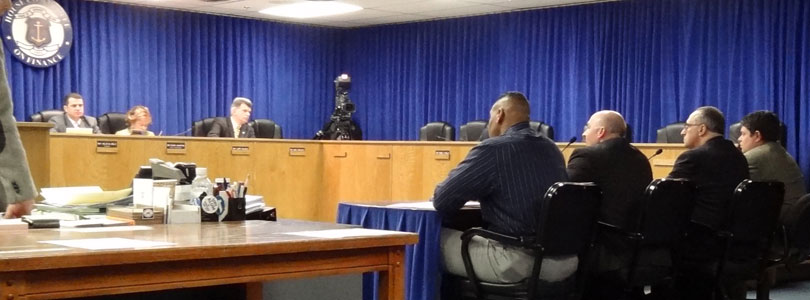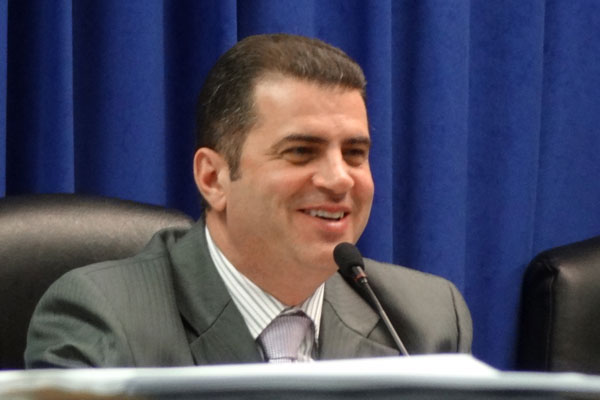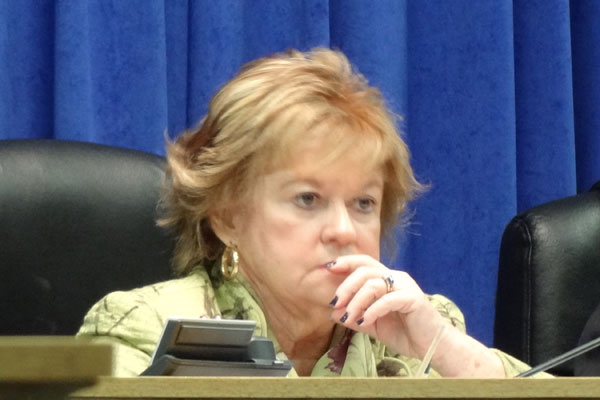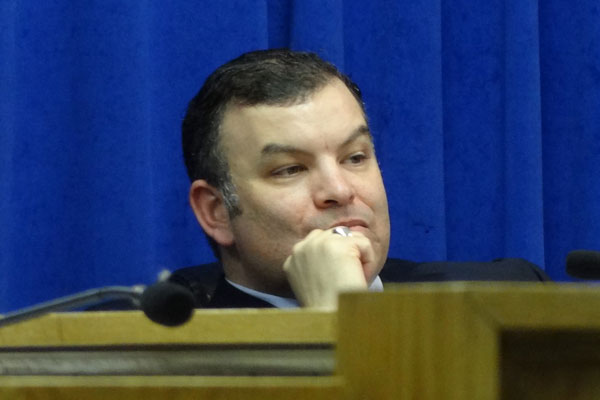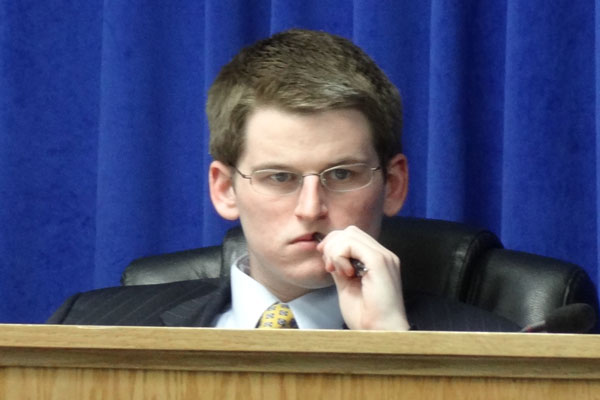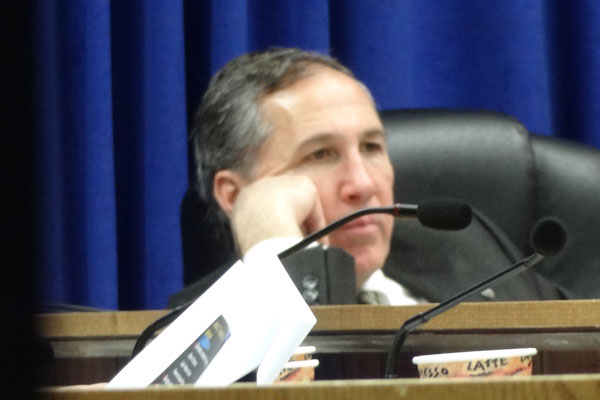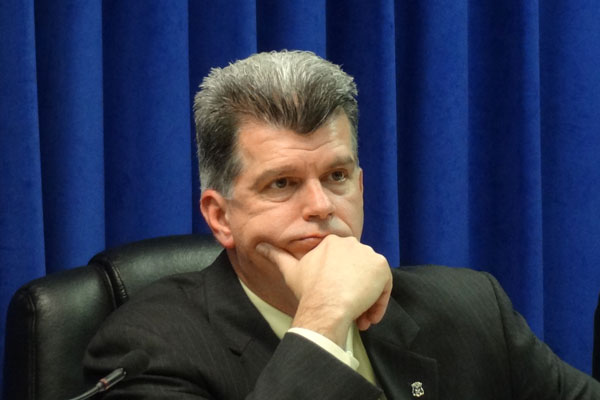03/15/12 – House Finance Committee
4:48 p.m.
I’m sitting in the basement of the State House, waiting for the General Assembly to wrap up its St. Patrick’s/St. Joseph’s celebration. The TV is showing the chambers, but the sound is off, so I couldn’t hear what Cicilline was saying. The folks waiting to testify in the House Finance room are expecting to be here a while.
5:12 p.m.
On the agenda are various budget articles, including Article 11, which (on a quick read) appears to remove the requirement that the state still pay some of the difference when pension payments go down from one year to the next.
Article 13 would align department directors’ cost of living adjustments to union-negotiated raises.
Article 22 removes the ability of corrections-related collective bargaining agreements from trumping some provision in state law.
Article 23 appears to take away the pay for members of various state boards, such as the Board of Elections and the Labor Relations Board.
And Article 33 would remove election day as an official state holiday for employees.
5:23 p.m.
The hearing has begun. There are two committee members present, currently hearing about the articles from three budget officers and being filmed by three cameras.
The two are Chairman Helio Melo and Larry Ehrhardt.
5:27 p.m.
Representatives Eileen Naughton and Larry Valencia have joined the room.
The budget officials are running through the articles described above. They’re giving the numbers, included expected savings and such.
5:31 p.m.
A few more legislators have entered the room. Carnevale. Reilly. Hearn. Gallison. Jackson.
Ehrhardt is asking about the pension article, noting that payments not made will have to be made later.
5:33 p.m.
Tom Mullaney, Budget Office Executive Director, is going over the articles. He says the provision to pay additional money into the pension system was not calculated into the projections during the discussion of pension reform, and it’s easier to just eliminate it.
5:37 p.m.
Now Mullaney’s explaining that part of the reason directors haven’t gotten COLA raises along with .
“The governor’s rationale” is that it’s a “fairness issue.” Directors haven’t gotten any COLAs since 2002, but before the hearing I heard one of them in the room saying (I think) that he’s the only person in state government who’s been affected the whole time.
“The increases would still be reflected in a public hearing,” but they won’t go to the legislature for review.
5:39 p.m.
All non-COLA changes would still go through the regular process.
Article 22 changes payment structure somehow (I missed the description); the union would have to negotiate the article into reality, though.
Article 23 affects only three boards. This, like many others, are just provisions that have been on a list for legislation from the Budget Office.
5:42 p.m.
The holiday provision essentially moves election day from a dedicated holiday into an additional personal day.
5:43 p.m.
(Note that my pictures won’t be as comprehensive here, because there’s nowhere that has a full view of speakers.)
5:45 p.m.
Dept. of Corrections Director Ashbel Wall is testifying on the relevant article (22). He’s explaining that the problem with the current law is that an arbitrator’s award would trump state law.
Article 22 would also expand overtime pay calculations from a 40-hour workweek to 171 hours over a 28-day period.
Melo asked if a law says that a contract can supersede a law, then it can supersede the law. Wall’s response notes the “circularity” created, but his answer was confusing.
5:54 p.m.
The legal council is explaining with an example using discipline: If the director were to fire an employee for horrible conduct, an arbitrator could agree with the misconduct but dictate a lower penalty (say, suspension). This article change would change that such that an arbitrator could disagree that misconduct had occurred, but not that the penalty should be less if it did.
5:57 p.m.
Wall is explaining that the overtime provision would not instantly make the change, but would make it possible for the state to negotiate the change.
Reilly asked about minimum manning. Wall says there isn’t a mandate in the contract, but they do know, from experience, how many people they need.
Reilly asked whether it would save money to move from 3 to 4 shifts. Wall says that they have considered 12-hour shifts, but research has been mixed. At the time they looked into it, the General Assembly was not willing.
Reilly’s asking whether the overtime change in article 22 would make a change of shifts more feasible. Wall’s answer: they can’t even discuss such changes.
Carnevale asked if the article would eliminate overtime if “a CO worked a 12 hour day.” The answer, after some confusion, was that he would if he worked over 171 hours in 28 days. (Essentially, it shaves 11 hours of overtime over that period.)
6:04 p.m.
A labor representative is testifying that even attaching this article to the budget has strained the relationship. The arbitrator trump provision was apparently vetoed and overriden when Carcieri was governor.
6:06 p.m.
The union rep. believes these items should be negotiated first and then put forward as representatives.
He is also bothered by the limited savings that the provision would actually secure.
6:08 p.m.
He just argued that the director has 78 unused full-time equivalents (FTEs) funded in the budget.
Paul Valetta from the state fire association is testifying that firefighters are not paid overtime in the manner that the article describes.
6:11 p.m.
“To ask these officers” to submit to extra hours without getting paid overtime is “a travesty.” He said that any board member who thinks it’s a good thing should go spend a shift (“you actually only need an hour”) at the ACI to be convinced that the article should not pass.
6:14 p.m.
Gallison is asking about shift lengths; I’m not sure of the point.
The discussion has turned to the math of eliminating an Election Day. The corrections union rep. is contending that there’s no savings. If you work Election Day, you get double-and-a-half time, but if he takes a personal day instead, he gets straight time, but the person who covers him gets time and a half.
6:18 p.m.
They’re moving on to the compensation of board members. Robert Kando, director of the Dept. of Elections is up, as is Robyn Hohenemser-Golden from the Labor Relations Board.
Kando opposes eliminating pay for his board members. “The Board of Elections is a unique board.” It’s sworn in by the Supreme Court. Its decisions go straight to the Supreme Court. “That essentially makes their decisions on a par with Superior Court decisions.”
“Even zoning board members receive stipends.” He’s arguing that pay ought to result because the Board of Election’s decisions aren’t reviewed by as many tiers of the legal hierarchy.
6:22 p.m.
The pay is only $37,000 per year for five (of the seven) board members. “It seems to me to be a bargain” because they do so much work.
Robyn H-G is the administrator at the labor relations board (has been for 10 years). There are seven board members who deal with “a highly specialized field.” Their expertise is difficult to replace.
6:25 p.m.
The audience greatly thinned once the corrections-union-related testimony was finished.
H-G is arguing that it would “halt” the board if they were all to quit when their pay disappeared. In turn labor strife would result… collective bargaining impasses… unilateral imposition of management desires.
6:27 p.m.
The handout for this article describes the savings as follows:
- Board of Elections: 5 members, $37,688 pay.
- Labor Relations Board: 7 members, $93,882
- Personnel Appeal Board: 5 members, $40,104
I’m reminded of something I heard today: a legislator was describing trying to work with state departments to clear regulations, and it turns out… they love and need every regulation on the books!
Dan Reilly asked for the Labor Relations Board’s salary schedule (they’re paid varying amounts). The answer: they start at $10,000, but the current board has been there for a minimum of 16 years each.
Reilly asked if they get longevity. H-G says that they did but now get no benefits. Reilly thinks the Labor Board ought to decrease its pay to the level of the other boards.
6:35 p.m.
Reilly asked why cases go to the state board and not the federal. The answer is that the state takes public, but the federal takes private union disputes, too.
Valencia asked Kando about the two members who don’t take salaries; they declined the pay.
Kando says board members probably work an average of 300-400 hours per week. That puts the average hourly pay rate between $17.50 AND $23.3.
On the Labor Board, they work a scheduled 8 hours per week. That’s roughly $24 per hour.
6:39 p.m.
They’re on to the pension article. Jim Cenerini of Council 94. “Our basic contention is that asking to put 20% of the reduction into the fund when COLAs have now been suspended” is adding insult to injury. He says it’s not a large amount of money, given the changes, but it will get them to the threshold to reinstate COLAs more quickly.
6:43 p.m.
James Parisi, Field Representative for the Rhode Island Federation of Teachers (RIFT), pointed out that the state always takes all the savings from its reforms without putting any additional money into the unfunded liability.
6:44 p.m.
Cenerini objects to the department-head article on the grounds that administrators could give non-union employees a bigger raise than union employees, and directors would get the bigger raise.
He also opposes the Election Day article on the grounds that it should be negotiated, not legislated (giving them a chance to get more in exchange, no doubt).
6:48 p.m.
They’re done. Time to see if I can make it to House Muni.
7:00 p.m.
I’ve made it to Municipal Government but have pretty much missed everything. The bills I was interested in had to do with Tiverton’s referendum vote, and after the meeting one legislator told me that the bill passed “but not without controversy.” I’ll have to get a hold of the Capitol TV audio recording to find out what that controversy entailed.

